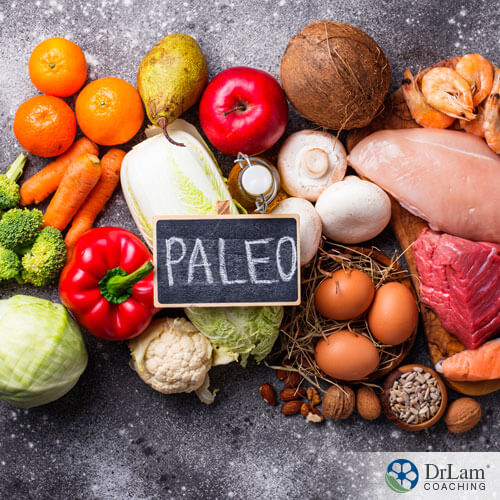 For many, there is a lot motivation to start dieting. For starters, some people simply want to be healthier. You may want to burn the excess fat that’s been making you feel tired or you may choose to diet because they want to feel good both inside and out. Either way, becoming more fit is the key to living a healthier and more satisfying life. But despite the best intentions, a lot of people are drawn to fad diets, like the keto and paleo diets. However, when it comes to paleo vs keto diet, although one may seem safer than the other, both diets can have dire consequences, particularly for the adrenal glands.
For many, there is a lot motivation to start dieting. For starters, some people simply want to be healthier. You may want to burn the excess fat that’s been making you feel tired or you may choose to diet because they want to feel good both inside and out. Either way, becoming more fit is the key to living a healthier and more satisfying life. But despite the best intentions, a lot of people are drawn to fad diets, like the keto and paleo diets. However, when it comes to paleo vs keto diet, although one may seem safer than the other, both diets can have dire consequences, particularly for the adrenal glands.
As far as today's fad diets go, both the paleo and keto diets have become quite popular and have gained a dedicated following. Some would even argue that these two diets are essentially in competition with each other. So, what would happen if the two diets were compared side by side: paleo vs keto diet? Which one is actually healthier? More importantly, which one is ultimately more beneficial for your health? And can either diet help prevent Adrenal Fatigue or support your recovery? The only way to answer these questions is by delving into the details of both diets a little further.
The paleo diet is a food plan that completely eliminates any kind of processed food and adopt the same diet humans lived on during the Paleolithic Period or Old Stone Age.
The Paleolithic Period represents a time when humans did not rely on agriculture for food. But instead, managed to live on vegetables, roots, nuts, fruit, and lean animal protein.
Under the paleo principle, anything harvested by agricultural methods or ranching are excluded from the diet, including cane sugar, grains, potatoes, and legumes. The diet also excludes dairy products since humans did not raise cattle during Paleolithic times. In addition, the use of salt is limited since salting food was uncommon at that time.
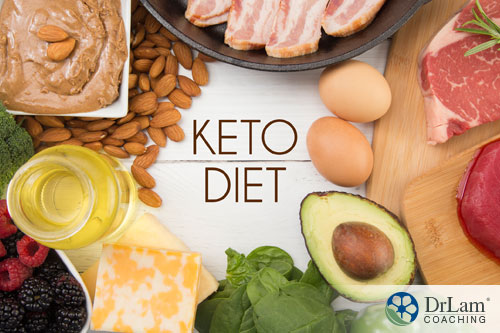 On the other hand, the ketogenic diet or keto diet is a prescribed meal plan that is low in carbohydrates. Depriving the body of carbs induces a metabolic state known as ketosis. When this happens, the body must turn fat, instead of sugars, into energy. However, the energy production process also converts some of this fat into ketones in the liver and this provides energy needed to power the brain.
On the other hand, the ketogenic diet or keto diet is a prescribed meal plan that is low in carbohydrates. Depriving the body of carbs induces a metabolic state known as ketosis. When this happens, the body must turn fat, instead of sugars, into energy. However, the energy production process also converts some of this fat into ketones in the liver and this provides energy needed to power the brain.
A typical keto diet consists of 75% fat, 20% protein, and 5% carbohydrates. On the diet, foods you are encouraged to eat include red meat, sausage, bacon, chicken, fatty fish, eggs, butter, cream, cheese, nuts, seeds, green vegetables, olive oil, and avocados.
Proponents of both diets will attest to their benefits. On one hand, the paleo diet has been shown to help maintain blood pressure and improve glucose tolerance. And those who have tried the diet usually experience significant weight loss.
Meanwhile, the keto diet is said to be largely beneficial if you are suffering from prediabetes or diabetes. The diet can lower blood sugar levels and improve your insulin sensitivity. At the same time, the keto diet is known to improve blood pressure and HDL cholesterol levels.
With all of these similar benefits, some may argue there is no clear winner in the paleo vs keto diet contest. But don’t forget that both diets are also closely related to stress.
When it comes to dieting, we tend to only think about the benefits. Often, the negative effects of a particular diet are ignored until it’s simply too late.
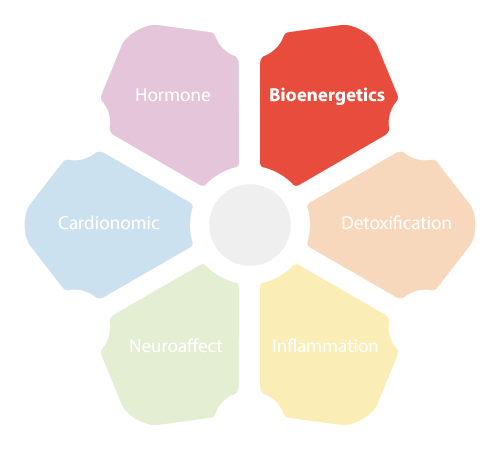 What you should keep in mind is that dieting involves prohibiting certain foods. Significant food restrictions can put stress on your body. In addition, forcing the body to consume significantly less calories can also add quite a lot of stress, and can trigger the NeuroEndoMetabolic (NEM) Stress Response System. This is your body’s built-in system for managing stress and is made up of six interconnected circuits including the Hormone, Bioenergetics, Detoxification, Inflammation, Neuroaffect, and Cardionomic Circuits.
What you should keep in mind is that dieting involves prohibiting certain foods. Significant food restrictions can put stress on your body. In addition, forcing the body to consume significantly less calories can also add quite a lot of stress, and can trigger the NeuroEndoMetabolic (NEM) Stress Response System. This is your body’s built-in system for managing stress and is made up of six interconnected circuits including the Hormone, Bioenergetics, Detoxification, Inflammation, Neuroaffect, and Cardionomic Circuits.
The adrenal glands are part of the Hormone circuit and respond to stress by producing the body’s primary stress hormone cortisol. The more stress your body experiences, the more cortisol your adrenals produce.
This could explain why cortisol levels are noticeably higher in people when they start a new diet. In fact, a study in the Psychosomatic Medicine journal found a higher total cortisol output in participants that dieted compared to those that did not.
What’s important to note is that cortisol affects the body in many different ways. For starters, when your body experiences stress, cortisol is produced to suppress any functions of the body that are not deemed necessary for the fight-or-flight response. And that includes immune system functions. At the same time, cortisol ensures your body has enough energy to deal with the stress at hand. Because of this, it also inhibits insulin production to make sure there is enough glucose available for use, instead of storing it.
 Increased cortisol production also influences the Bioenergetics Circuit, which is comprised of the thyroid, pancreas, and liver. The thyroid produces its own hormones and regulates how fast your body’s metabolism works. At the same time, the pancreas secretes insulin and the liver clears harmful metabolites from the body.
Increased cortisol production also influences the Bioenergetics Circuit, which is comprised of the thyroid, pancreas, and liver. The thyroid produces its own hormones and regulates how fast your body’s metabolism works. At the same time, the pancreas secretes insulin and the liver clears harmful metabolites from the body.
When you experience chronic stress, elevated cortisol levels affect the thyroid’s ability to produce its own hormones. If this happens, thyroid function begins to slow, and your metabolism also slows down. This means your body will no longer be able to get enough energy to deal with the unrelenting stress.
Chronic stress can overwork components of the NEM Stress Response. In particular, the adrenals will eventually be unable to keep up with the body’s demand for cortisol. This can lead to hormone imbalances throughout the body and trigger Adrenal Fatigue Syndrome (AFS).
Even worse, stress promotes unhealthy eating habits and overeating. In fact, one study performing in the UK discovered that stressed out participants snack more often. Similarly, a study published in the journal of Psychoneuroendocrinology found that women who experienced more stress consumed more sweets. Moreover, a bad mood was positively correlated with an increase in food consumption. So, if this happens, any perceived weight-loss benefits of a particular diet are essentially thwarted.
Moreover, if you’re already suffering from Adrenal Fatigue, snacking on larger portions of unhealthy foods will place further stress on your body. This is because it forces your body to work harder to process the food, which puts more pressure on the already overworked functions of the NEM Stress Response System. In this regard, neither the paleo or keto diet are beneficial in the long run. And this is especially true if you suffer from AFS.
Generally, in terms of the paleo vs keto diet, neither are suitable if you’re suffering from Adrenal Fatigue. Nonetheless, certain foods from both diets can help with your recovery from Adrenal Fatigue.
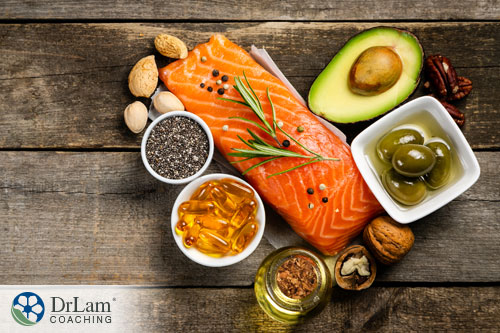 Fatty fish like mackerel, salmon, and herring are rich in omega-3 fatty acids that can fight the inflammation caused by stress and can increase your metabolic rate.
Fatty fish like mackerel, salmon, and herring are rich in omega-3 fatty acids that can fight the inflammation caused by stress and can increase your metabolic rate.
Avocados are full of healthy fats which can help stabilize your blood sugar levels and hormone levels. At the same time, they contain dietary fiber, which can help you feel fuller for much longer.
Olive oil is high in monounsaturated fat, which helps control cholesterol and blood pressure. In addition, extra-virgin olive oil is high in antioxidants.
Before trying any of new foods, it’s a good idea to consult with your physician first to rule out any possible food allergies or intolerances. This is particular critical here since some of these foods are recognized allergens.
Some healthy foods are not permitted on the paleo or keto diet but are vital in helping your body fight stress and recover from Adrenal Fatigue.
Whole grains such as steel-cut oats, buckwheat, millet, and quinoa are high in fiber, which can help you feel fuller for longer. Fiber also provides you with the energy you need to face the day.
You can include any type of whole grain into your diet by serving them alongside a portion of lean and healthy protein.
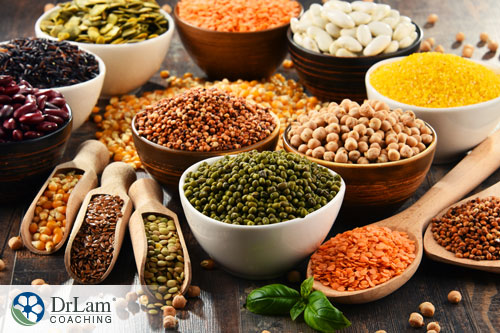 Legumes such as lentils, chickpeas, peas and beans can help your body maintain healthy blood sugar levels. They are also rich in fiber and protein.
Legumes such as lentils, chickpeas, peas and beans can help your body maintain healthy blood sugar levels. They are also rich in fiber and protein.
Keep in mind that it’s possible to have an allergic reaction to all of these foods. Hence, consulting with a physician or qualified healthcare practitioner before consuming them for the first time is highly recommended, especially if you’re suffering from Adrenal Fatigue. You might be asked to undergo a food intolerance test to determine which foods may harm your body.
As you can see, the matter of the paleo vs keto diet is largely irrelevant if you suffer from Adrenal Fatigue because both diets impose significant restrictions on some of the healthy foods you need. Therefore, both diets can easily trigger more stress, which is incredibly harmful if you’re trying to recover from Adrenal Fatigue. Instead, eat meals that are filled with wholesome, nutritious foods. This will ensure that you have energy you need to deal with any stressors that may come your way. And you’ll be on the path to Adrenal Fatigue recovery much faster.
Here are two recipes to try out:
© Copyright 2020 Michael Lam, M.D. All Rights Reserved.
The paleo vs keto diet debate rages on but essentially both diets are not beneficial for anyone in the long run. Both diets can become a source of chronic stress. If this happens and you choose to stay on the diet, you could end up with AFS.
